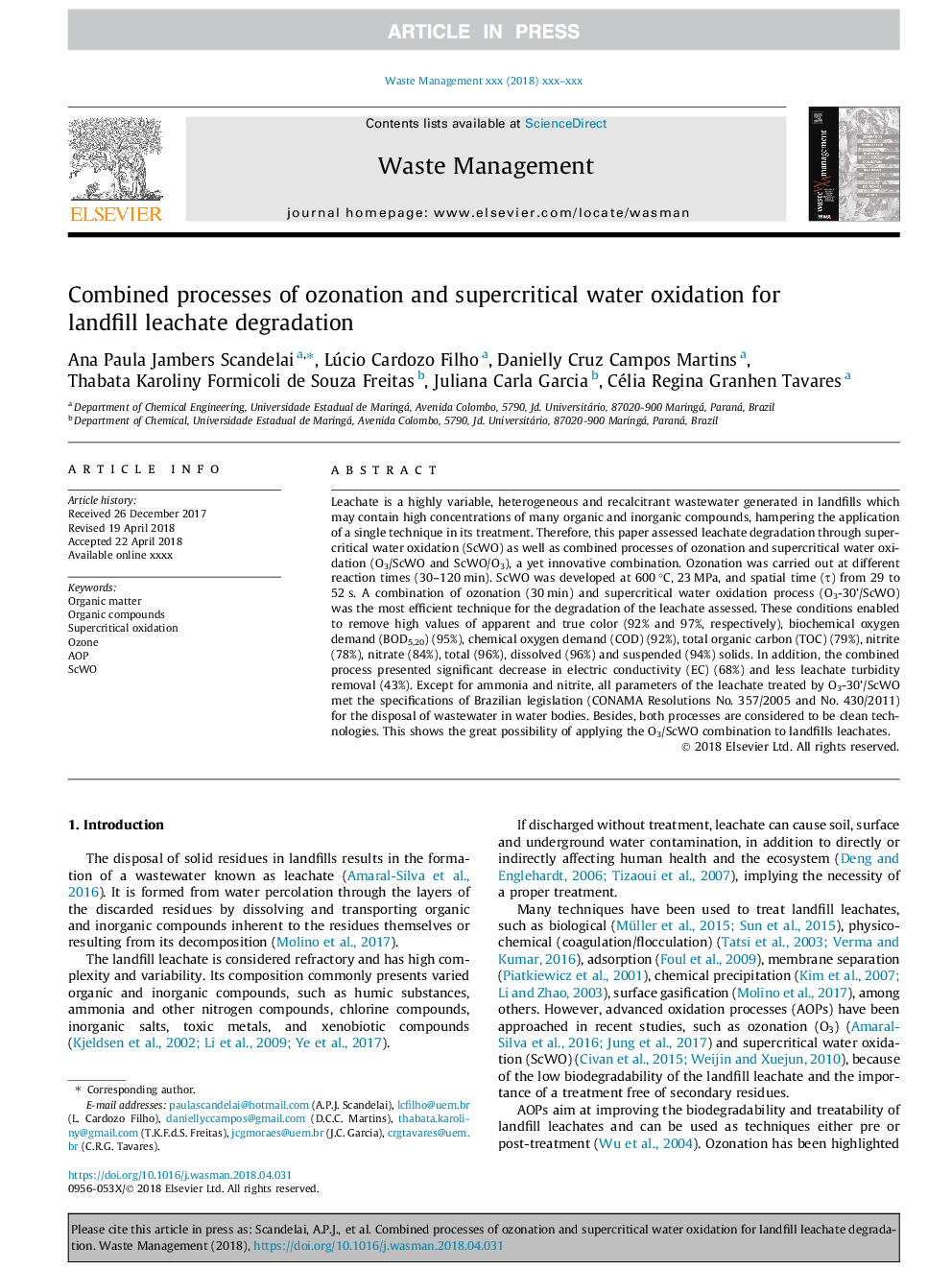| Article ID | Journal | Published Year | Pages | File Type |
|---|---|---|---|---|
| 8869712 | Waste Management | 2018 | 11 Pages |
Abstract
Leachate is a highly variable, heterogeneous and recalcitrant wastewater generated in landfills which may contain high concentrations of many organic and inorganic compounds, hampering the application of a single technique in its treatment. Therefore, this paper assessed leachate degradation through supercritical water oxidation (ScWO) as well as combined processes of ozonation and supercritical water oxidation (O3/ScWO and ScWO/O3), a yet innovative combination. Ozonation was carried out at different reaction times (30-120â¯min). ScWO was developed at 600â¯Â°C, 23â¯MPa, and spatial time (Ï) from 29 to 52â¯s. A combination of ozonation (30â¯min) and supercritical water oxidation process (O3-30'/ScWO) was the most efficient technique for the degradation of the leachate assessed. These conditions enabled to remove high values of apparent and true color (92% and 97%, respectively), biochemical oxygen demand (BOD5,20) (95%), chemical oxygen demand (COD) (92%), total organic carbon (TOC) (79%), nitrite (78%), nitrate (84%), total (96%), dissolved (96%) and suspended (94%) solids. In addition, the combined process presented significant decrease in electric conductivity (EC) (68%) and less leachate turbidity removal (43%). Except for ammonia and nitrite, all parameters of the leachate treated by O3-30'/ScWO met the specifications of Brazilian legislation (CONAMA Resolutions No. 357/2005 and No. 430/2011) for the disposal of wastewater in water bodies. Besides, both processes are considered to be clean technologies. This shows the great possibility of applying the O3/ScWO combination to landfills leachates.
Related Topics
Physical Sciences and Engineering
Earth and Planetary Sciences
Geotechnical Engineering and Engineering Geology
Authors
Ana Paula Jambers Scandelai, Lúcio Cardozo Filho, Danielly Cruz Campos Martins, Thabata Karoliny Formicoli de Souza Freitas, Juliana Carla Garcia, Célia Regina Granhen Tavares,
